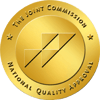Addiction is often associated with substance abuse, but not all addictions involve drugs or alcohol. Process addiction, also called behavioral addiction, occurs when a person compulsively engages in a specific behavior despite negative consequences. These behaviors trigger the brain’s reward system, leading to dependence.
Unlike substance addiction, process addiction does not involve chemical substances, but it can be just as damaging. Understanding this type of addiction is essential for recognizing the signs, assessing risks, and seeking effective treatment programs. %20%20(4).png?width=672&height=480&name=(672%20x%20480%20px)%20%20(4).png)
Questions Answered:
- What is a Process Addiction?
- Can Process Addiction Lead to Physical Health Issues?
- How Does Process Addiction Differ from Substance Addiction?
- How to Support a Loved One with Process Addiction?
What is a Process Addiction?
Process addiction is a mental health condition that involves compulsive behaviors, such as excessive gambling, shopping, or video gaming. These behaviors provide temporary pleasure or relief but can become uncontrollable over time.
The Diagnostic and Statistical Manual of Mental Disorders (DSM-5) officially recognizes gambling addiction as a behavioral addiction. Other process addictions are still being researched, but their impact is widely acknowledged.
Individuals struggling with process addiction may neglect responsibilities, damage relationships, and experience emotional distress. Despite these consequences, they find it difficult to stop engaging in the behavior.
Risk Factors and Causes of Process Addiction
Several factors contribute to the development of process addiction:
- Genetics: A family history of addiction increases the risk of developing compulsive behaviors.
- Mental Health Conditions: Anxiety, depression, and other disorders can lead to process addiction as a coping mechanism.
- Environmental Factors: Stressful life events, peer pressure, or exposure to addictive behaviors can increase susceptibility.
Personality Traits: Impulsivity and sensation-seeking behaviors are common in individuals with process addiction.
Hope is real, recovery is possible.
Take the first step now.
Common Types of Process Addiction
Process addiction can take many forms. Each type of addiction affects individuals differently, but all share compulsive tendencies that interfere with normal functioning. Some of the most recognized types include:
Gambling Addiction
An uncontrollable urge to gamble despite financial or personal consequences. This addiction can result in severe debt, legal problems, and emotional distress. Many individuals with gambling addiction struggle to stop even after losing significant amounts of money.
Shopping Addiction
Also called compulsive buying disorder, this addiction leads to excessive spending, financial struggles, and guilt. Individuals may feel a temporary high from purchasing items but experience regret and stress afterward.
Video Game Addiction
Video gaming can become problematic when individuals prioritize games over work, school, or social interactions. Excessive gaming can lead to sleep deprivation, neglect of responsibilities, and social isolation.
Food Addiction
Compulsive eating, especially high-fat or high-sugar foods, can lead to obesity and other health risks. Food addiction is often linked to emotional distress, where individuals eat to cope with negative emotions.
Sex Addiction
Persistent and excessive sexual thoughts or behaviors interfere with daily life. This addiction can lead to risky behaviors, damaged relationships, and emotional turmoil.
Exercise Addiction
An obsession with physical fitness can result in overtraining, injury, and exhaustion. Individuals with exercise addiction may feel compelled to work out excessively, even when injured or unwell.
Work Addiction
Also known as workaholism, this addiction leads to burnout and strained relationships. Workaholics often prioritize their jobs over personal well-being, leading to chronic stress and health complications.
Signs and Symptoms of Process Addiction
Recognizing process addiction involves identifying compulsive behaviors and their impact on daily life. Common signs of process addiction include:
- Inability to control or reduce the behavior
- Preoccupation with the activity
- Neglecting responsibilities and relationships
- Using the behavior as an emotional escape
- Experiencing distress when unable to engage in the behavior
- Hiding or lying about their behaviors from others to avoid judgment
- Changes in mood or social withdrawal
If these signs persist, individuals should seek treatment to regain control over their lives.
The journey to recovery starts with one choice.
Choose change and healing today.
Can Process Addiction Lead to Physical Health Issues?
Process addiction does not involve ingesting harmful substances, but it can still cause physical harm. The health effects depend on the specific behavior:
- Video Game Addiction: Sedentary behavior increases the risk of obesity, back pain, and poor posture. Sleep deprivation is also common.
- Gambling Addiction: Chronic stress and anxiety can lead to high blood pressure, heart disease, and digestive issues.
- Food Addiction: Excessive consumption of unhealthy foods can cause obesity, diabetes, and cardiovascular disease.
- Work Addiction: Overworking leads to exhaustion, weakened immunity, and increased risk of developing chronic illnesses.
- Exercise Addiction: Excessive physical activity can cause joint damage, stress fractures, and immune system suppression.
Addressing process addiction is not just about mental well-being but also physical health. Seeking early intervention can prevent long-term consequences.
How Does Process Addiction Differ from Substance Addiction?
Although both process addiction and substance addiction activate the brain’s reward system, key differences exist:
- Dependency Type: Substance addiction involves chemical dependency, whereas process addiction involves a psychological dependence on a specific behavior.
- Withdrawal Symptoms: Substance abuse withdrawal symptoms include physical reactions such as nausea, tremors, and sweating. Process addiction withdrawal symptoms are primarily emotional, including anxiety, irritability, and depression.
- Diagnosis and Treatment: The DSM-5 formally recognizes some behavioral addictions, such as gambling addiction, but not all. Treatment plans for process addiction often focus on cognitive-behavioral therapy rather than medical detox.
Despite these differences, process addictions and substance addictions share common risk factors, such as stress, trauma, and genetic predisposition.
Embrace change, reclaim your future.
Your freedom starts today.
Benefits of Treatment for Process Addiction
Overcoming process addiction requires a comprehensive treatment plan tailored to the individual’s needs. Effective treatment options include:
- Support Groups
- Inpatient and Outpatient Treatment
- Medications
- Mindfulness Techniques
- Lifestyle Changes
Highlighting the benefits of treatment for process addiction can be a powerful way to encourage someone to seek professional help. Here are some key advantages of undergoing treatment:
Improved Mental Health
Treatment addresses both the addiction and any co-occurring mental health disorders, such as anxiety or depression, leading to better overall mental well-being.
Holistic Approach
Many treatment programs offer a holistic approach, focusing on healing the mind, body, and spirit. This comprehensive method can lead to lasting recovery by addressing all aspects of a person's life.
Individualized Treatment Plans
Treatment is tailored to each individual's unique needs, ensuring that the approach is effective and personalized.
Skill Development
Therapies like CBT and DBT help individuals develop crucial skills such as stress management, emotional regulation, and improved social skills, which are essential for maintaining healthy relationships.
Support Network
Treatment centers provide a supportive environment where people can connect with others facing similar challenges, fostering mutual understanding and support.
Enhanced Self-Esteem and Life Satisfaction
Process addiction therapy can lead to improved emotional regulation, enhanced self-esteem, healthier relationship patterns, and increased life satisfaction.
Resilience and Coping Mechanisms
Treatment helps individuals build resilience against stressors and develop healthier coping mechanisms to manage triggers and prevent relapse.
How to Support a Loved One with Process Addiction?
Supporting someone with process addiction requires patience, understanding, and encouragement. Educating yourself about the condition can help you better understand what your loved one is experiencing.
Open communication is essential—creating a safe, non-judgmental space for them to discuss their struggles can make a significant difference.
Encouraging them to seek treatment is one of the most impactful ways to help. Suggest professional therapy, support groups, or structured treatment programs to aid in their recovery.
Setting healthy boundaries is also important to avoid enabling their behavior while maintaining a supportive presence. Offering emotional support by reassuring them that they are not alone in their recovery journey can provide motivation.
Overcoming addiction is a long process, and setbacks may occur. Being patient and continuously offering encouragement can help them stay committed to their recovery goals.
Soberman’s Estate is a premier men-only treatment center in Arizona, specializing in drug and alcohol addiction recovery. Our expert team provides a safe, tranquil environment where men can overcome substance use disorders and related challenges.
If you or someone you know is struggling, professional support and community resources can be life-changing. Contact our Admissions Director for a free consultation at (480) 757-8403 or
Don’t waste your time.
Take the opportunity and recover today.





